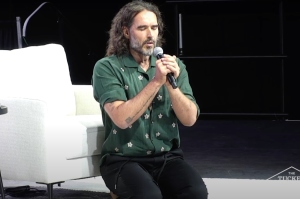Religious Democrats align more with secular Democrats than religious Republicans on abortion: study

Religious Democrats are more aligned with secular Democrats than religious Republicans on the issue of abortion, according to research compiled by Ryan Burge, as the gap in views about abortion between religious and secular Republicans continues to widen.
In his Substack post Monday, Burge, an associate professor of political science at Eastern Illinois University, examines “Religious Democrats and Secular Republicans,” specifically the views of the two groups on the polarizing issue of abortion and how their opinions differ from those of secular Democrats and religious Republicans. He used data from the Cooperative Election Studies in 2008 and 2022 to classify voters for both political parties into two mutually exclusive categories: secular and religious.
Burge began the piece by noting that although the share of secular voters in both political parties has increased since 2008, religious voters still constitute an overwhelming majority of Republican voters, while secular voters have nearly caught up to religious voters as the leading source of votes for Democrats. Religious voters made up 64% of Democrat voters in 2008, that figure had dropped to 52% by 2022. Religious voters comprised 87% of Republican voters in 2008, decreasing to 79% by 2022.
“Put another way — for the Democrats there is one religious person for every secular person. For the Republicans there are four religious voters for every secular member of the GOP. Thus, it’s a long time before secular voters have significant sway over the Republicans. For the Democrats, that time is now.”
Burge analyzed the views of secular Republicans, secular Democrats, religious Republicans and religious Democrats on the issue of abortion based on data from the 2022 Cooperative Election Study. He discovered that secular Democrats and religious Democrats were the most supportive of abortion among the four groups, while religious Republicans expressed the highest level of support for restrictive abortion policies.
Religious Republicans were the most likely to support making abortion illegal in all circumstances (27%) followed by religious Democrats (13%), secular Republicans (13%) and religious Democrats (6%). Large majorities of secular (93%) and religious Democrats (79%) favored always allowing “a woman to obtain an abortion as a matter of choice,” along with nearly half (49%) of secular Republicans and just 25% of religious Republicans.
Substantial majorities of religious (81%) and secular (68%) Republicans favored prohibiting all abortions after 20 weeks of pregnancy. By contrast, just 41% of religious Democrats and 21% of secular Democrats said the same. Similarly, support for banning federal funding of abortions was much higher among religious Republicans (77%) and secular Republicans (58%) than religious Democrats (26%) and secular Democrats (11%).
Burge also looked at the views of religious Republicans, secular Republicans, religious Democrats and secular Democrats over time based on nearly a half-century’s worth of data from the General Social Survey. He focused on the changes in views on abortion among Democrats from 2010-2022. In 2010, 70% of secular Democrats supported making abortion legal for any reason. By 2022, that number had increased to 87%.
An even larger increase in support for abortion materialized among secular Democrats within that same period. While less than half (42%) of religious Democrats favored legal abortion for any reason in 2010, that figure nearly doubled to 78% by 2022.
Public opinion on abortion has trended in the opposite direction among Republicans for the past half-century. While a strong majority (70%) of secular Republicans supported abortion on demand in 1977, that number dropped to 50% in 2002 before slightly increasing to 55% in 2022. Burge noted that support for abortion in all cases among religious Republicans remained steady at around 37% from 1977-1992, while dropping to about 30% in 2000 and barely budging since then.
When asked if a woman should have the right to abort her baby if she merely did not want to have any more children, around 75% of secular Democrats answered in the affirmative over several decades. In 2022, 95% of secular Democrats favored allowing abortion as a form of birth control. Support for allowing women who did not want any more children to terminate their pregnancies remained steady between 40% and 50% among religious Democrats for decades before rising to more than 80% in 2022.
Support for letting women abort their children if they did not want to have any more has remained at about 60% among secular Republicans since 2000, which represents a drop from the 80% support for abortion in such a circumstance measured in the 1970s. Support for letting women terminate their pregnancies if they did not want any more children has always been comparatively low among religious Republicans, falling from around 47% in the 1970s to around 30% since 2004.
“Where’s the bigger God gap?” Burge asked. “It’s clearly among the Republicans. In 2022, the differences between the two types of Democrats was small — just about 10 percentage points. Among the Republicans, it’s 30 percentage points. It’s pretty evident to me that secular Republicans are a different animal entirely on abortion compared to religious Republicans. Among Democrats, the gap is relatively small.”
Burge suggested that based on the data he uncovered, a pro-life Democrat is much more likely to be “ostracized in today’s political climate” than a pro-abortion Republican: “The post-religious left has managed to purify the Democratic party on issues in which there used to be a tremendous amount of diversity. Now, to be an orthodox Democrat is to be in favor of abortion on demand, regardless of the reason.”
Ryan Foley is a reporter for The Christian Post. He can be reached at: ryan.foley@christianpost.com



























